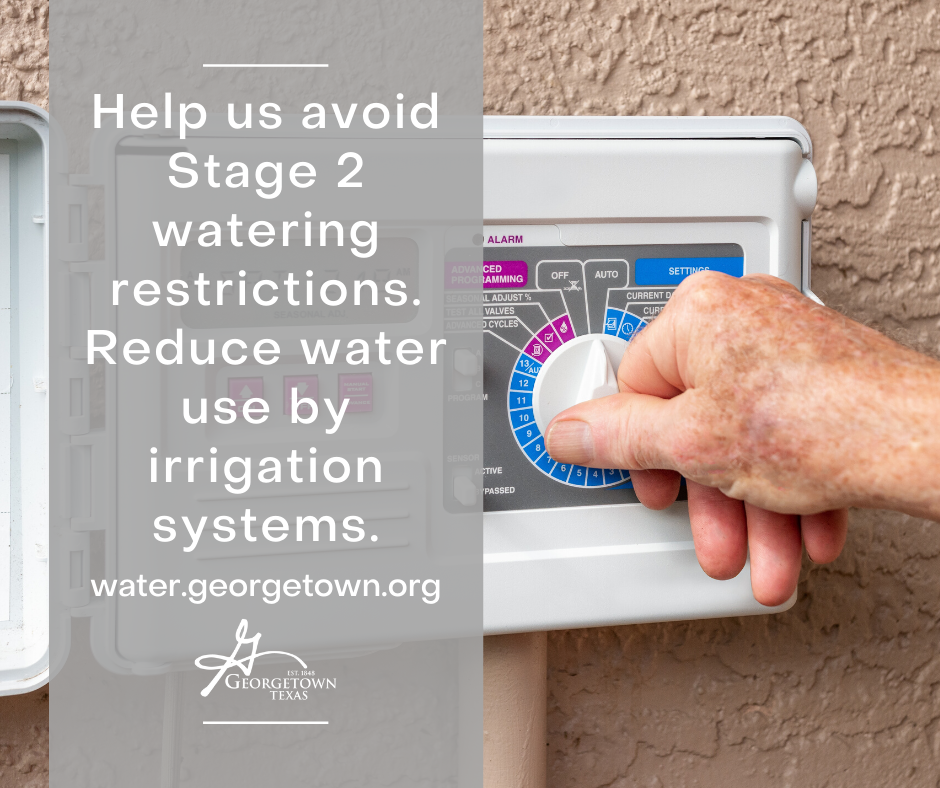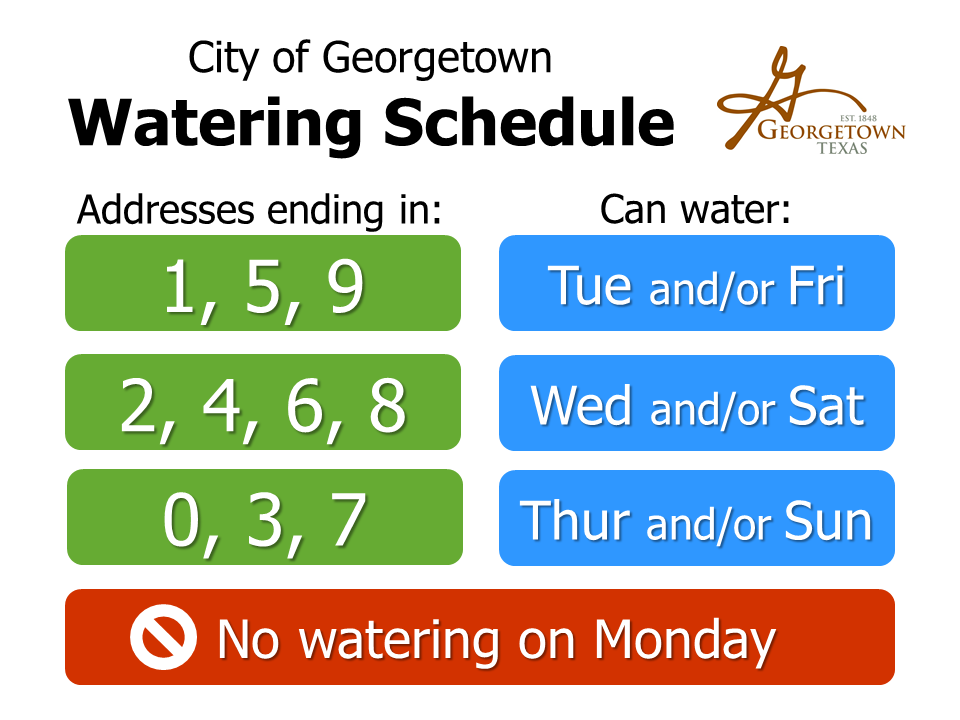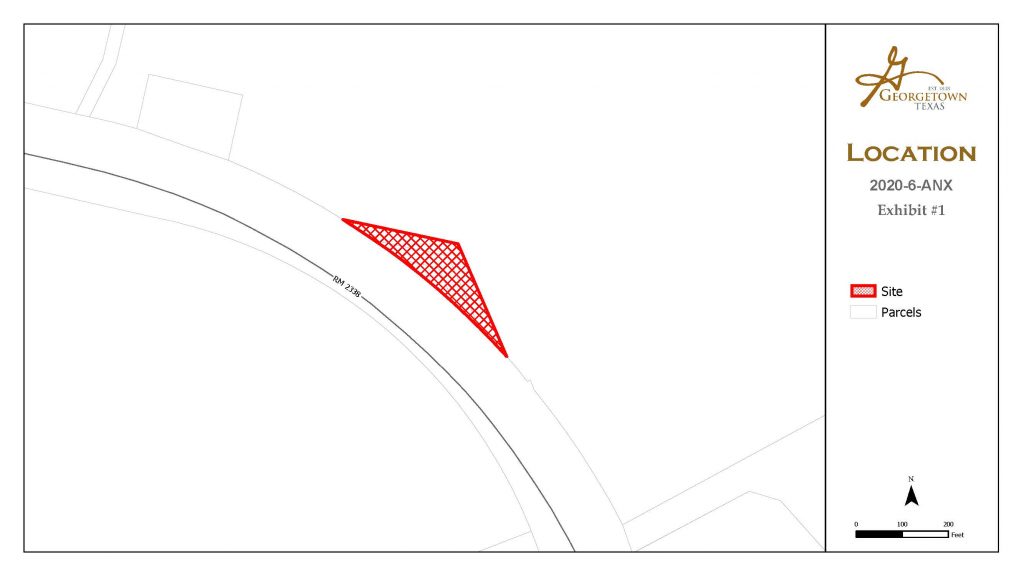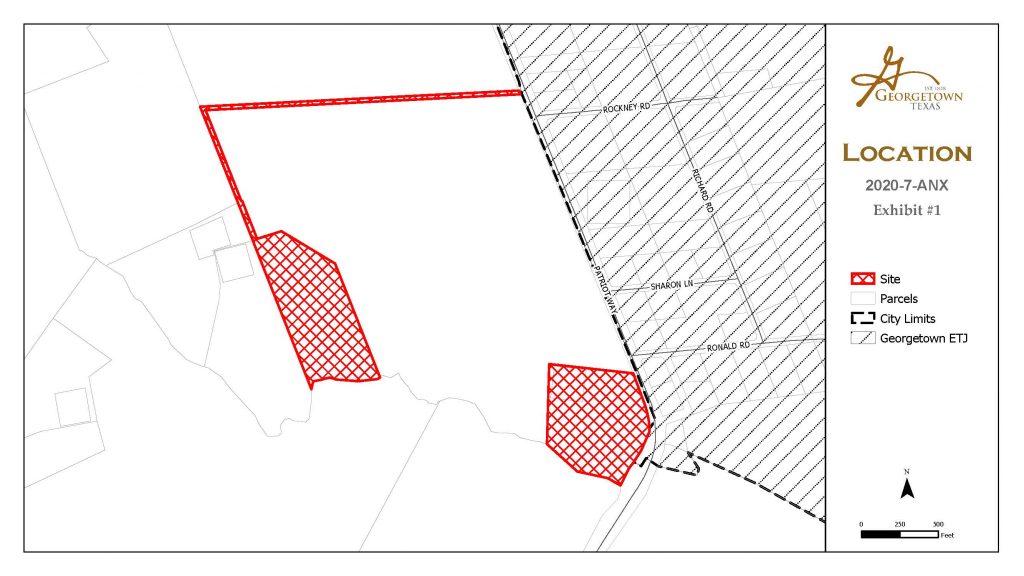Mosquito trap pool tests positive for West Nile Virus
A mosquito trap sample collected Tuesday in Georgetown has tested positive for West Nile Virus. This testing is part of the City of Georgetown’s participation in the Williamson County and Cities Health District’s Integrated Vector Management program. The positive test was indicated in lab results received yesterday afternoon from the Texas Department of State Health Services lab in Austin.
The sample was collected from a trap in the Sun City neighborhood along Yellow Rose Trail on Aug. 11. West Nile Virus is the most common mosquito-borne disease in the United States. In 2020, there have been five mosquito trap pools that returned positive for West Nile Virus in Williamson County.
City of Georgetown staff will continue mosquito control efforts with the treatment of standing water with larvicide, and WCCHD will continue enhanced monitoring and testing, along with increased public outreach and education. The City is prepared to take additional action if necessary.
While there have been no incidences of human infection of West Nile Virus in Williamson County this year, symptoms of infection may include fever, headache, and body aches, a skin rash on the trunk of the body, and swollen lymph nodes. Those age 50 and older and/or with compromised immune systems are at a higher risk for severe symptoms, which may include stiffness, disorientation, coma, tremors, vision loss, paralysis, and in rare cases, death.
Mosquitoes are present in Central Texas year-round, but the population is largest and most active from May through November. During this period, WCCHD monitors the mosquito population and tests for mosquito-borne viruses.
The most important way to prevent West Nile Virus is to reduce the number of mosquitoes where people work and play.?Health officials strongly encourage everyone to remain vigilant about protecting themselves from mosquito bites and preventing mosquito breeding on their personal property. Mosquitoes breed in standing water, needing as little as one teaspoon. By draining all sources of standing water in and around your property, you reduce the number of places mosquitoes can lay their eggs and breed.
What you can do
Eliminating places where mosquitoes can breed and reducing the chances of mosquito bites are the most effective lines of defense against exposure to West Nile Virus. As part of its Fight the Bite campaign the Health District recommends the 3 Ds of mosquito safety:
- Drain standing water in flowerpots, pet dishes, or clogged gutters so mosquitoes don’t have a place to breed and treat water that can’t be drained,
- Defend by using an EPA-approved insect repellent, and
- Dress in long sleeves and pants when outdoors.
For more information, go to the WCCHD website at www.wcchd.org or visit the Texas Department of State Health Services West Nile website at txwestnile.org.
City provides funding to help people affected by COVID-19 pay residential utility bills
The City of Georgetown has nearly $1 million in funding available to help residential utility customers affected by the COVID-19 pandemic pay their utility bills. Anyone who has lost their income since the start of this year may qualify for assistance.
The COVID-19 Customer Assistance Program offers up to $1,500 to residential utility customers who have past due balances in 2020 and can show their income or employment has been affected by the pandemic or any resulting restrictions, such as the stay home orders that were in effect. Financial assistance will be provided on a first-come, first-served basis while funds last. As of July 31, the City has provided $3,800 to help a total of eight customers.
“COVID-19 continues to take its toll on our local economy and on our neighbors,” Mayor Dale Ross said. “We specifically wanted to get the funding to people who desperately need help but might not have other ways to get it. Please, if you need help paying your bills, reach out and apply. We want to help.”
City Council authorized the funding in May to provide assistance to customers affected by the pandemics who don’t qualify for other, low-income assistance programs. Only 10 percent of the COVID-19 Customer Assistance Program will go toward people who qualify for other assistance. Funding for the program comes from unanticipated income and special revenues in both our water and electric utilities.
The City partnered with Opportunities for Williamson and Burnet Counties to administer the program. OWBC manages several assistance programs throughout the area.
“As the duration of the COVID-19 pandemic has moved from a few weeks to many months, the need in our community is only increasing,” Director of Community Services Kori Ince said. “OWBC has additional funding and is ready to assist those in need. Please visit our website to apply.”
We are doing two waves of the program at $500,000 each. The first started June 1, and the second was released Aug. 1.
More information about the program and applications are available on OWBC’s website or by calling Customer Care at 512-930-3460.
City’s proposed FY2021 budget lowers property tax rate, focuses on maintaining services
The City’s proposed Fiscal Year 2021 budget would decrease the City’s property tax rate, making it the lowest of all cities in the Austin area with a population greater than 20,000 while maintaining high-quality services to the community. As a result of the lower tax rate and a decline in the average taxable value of homestead property, the average Georgetown homeowner is expected to pay lower property taxes next year.
“The proposed budget is intended to respond to pressures from both the uncertainty of the global pandemic and the continued growth in Georgetown,” City Manager David Morgan said. “We incorporated conservative revenue estimates and adjusted expenses to address the most significant impacts of a growing population to continue providing critical services at the high standards our residents expect of us.”
The full, proposed budget is available for review at finance.georgetown.org. It totals $396 million and reflects priorities shared both through public engagement and previous council discussions.
Morgan will present the proposed budget during the Aug. 11 City Council workshop, which starts at 3 p.m. The Council will set the maximum tax rate and public hearing dates during the regular Council meeting, which starts at 6 p.m.
In-person public comments to the council are limited due to COVID-19. People can visit agendas.georgetown.org for all options and details about how to provide comment.
The overall focus of the FY2021 budget is to preserve and maintain City services, in response both to continued growth and uncertainty from the COVID-19 pandemic. It addresses these priorities through utility and transportation infrastructure development, public safety improvements, long-range planning initiatives, economic development achievements, and sustaining City service levels.
The proposed budget takes a conservative outlook for the next fiscal year, with the overall budget coming in 10 percent lower than the adopted FY2020 budget. The General Fund, which pays for several, critical services such as public safety, streets, library services, and parks and recreation, would increase by 3.7 percent – lower than the city’s population growth of 7.2 percent.
The proposed budget would decrease the City’s property tax rate by $0.002. The average homestead property in Georgetown has decreased in taxable value by 2.3 percent, down from $284,765 in FY2020 to $278,001 in FY2021. Coupled with the decrease in the property tax rate, it is anticipated the average homeowner in Georgetown will pay $34 less in property tax in the upcoming year.
Other highlights in the proposed budget include the following:
- 15.5 new positions, including staff for Fire Station No. 7 and two police officers
- 14 frozen positions, for at least part of the year
- $1 million in cuts to department budgets, including less funding for training, travel, and supplies
- Competitive employee compensation and benefits, including market and merit raises for non-civil service employees, and market increases and annual step for public safety employees
- $77.4 million in capital improvement projects, including investments in transportation, water and wastewater, electric, and the public safety complex.
- Council discretionary funds for one-time uses, including small area plan development for the Track Ridge Grasshopper and San Jose neighborhoods
- Initiating design for improvements to D.B. Wood Road, the last, large project from the 2015 bond.
- Increased sanitation rates to help pay for increased costs with Texas Disposal Systems, reconstruction of the transfer station, and improvements to the household hazardous waste program
IMPORTANT BUDGET DATES
June 10-June 26: Budget engagement
July 21: First Council budget workshop
Aug. 11: First presentation of the full budget; City Council sets maximum tax rate and public hearing dates
Sept. 8: Public hearings and first reading of both the tax rate and the budget
Sept. 22: Second reading of the tax rate and budget
For more information, visit finance.georgetown.org.
Energy conservation tips
Given the forecast for temperatures in the upper 90s in the coming days, the demand for energy could be reaching peak annual levels as air conditioners work to keep homes and offices cool. High electric use could lead ERCOT to take steps to reduce demand, which could include energy conversation alerts or, in rare cases, rolling outages.
To avoid the need for rolling outages, residents can take these steps to reduce energy use.
- Adjust thermostats 2 to 3 degrees higher, especially from 3 to 7 p.m., and set programmable thermostats to higher temperatures when no one is home.
- Use fans to feel 4 to 6 degrees cooler.
- Set pool pumps to run early morning or overnight and shut off from 4 to 6 p.m.
- Turn off and unplug non-essential lights and appliances.
- Avoid using large appliances such as ovens and washing machines during the 3 to 7 p.m. hours.
- Minimize use of lighting and electricity-consuming office equipment as much as possible in businesses and other workplaces.
- Shut down non-essential production processes at factories and large business operations.
As we enter the hottest days of the year, taking simple these steps to reduce energy consumption will help ensure demand on the hottest days is manageable.
City hosts history-based webinars
The City’s Planning Department has joined with the Georgetown Public Library to host an informal webinar series named “Tuesday Talks with Britin and Ann.” The monthly webinars will feature different topics covering Georgetown’s history lead by Georgetown Downtown and Historic Planner Britin Bostick and Reference Librarian Ann Evans.
The meetings will be held at noon on the first Tuesday of the month, starting Aug. 4, and feature a different topic each month. Links to the meetings will be online at historic.georgetown.org.
The first meeting will cover the history of I-35 through Georgetown, including how the highway’s route came to be and how its construction in the mid-1960s changed downtown Georgetown.
For more information, call (512) 930-3581, email historic@georgetown.org or visit historic.georgetown.org.
Proposed Voluntary Annexation of 0.526 acres (Highland Village Phase II)
The City of Georgetown is considering a voluntary annexation of property into the city limits. A Public Hearing will be held at the September 8, 2020 meeting at 6:00pm. City Council meetings are located at the City Council Chambers, 510 W. 9th Street. Due to operational constraints resulting from the COVID-19 pandemic, this meeting may be held via the video conference. The final location of the meeting and instructions on how to join via the video conference or call in number meeting will be posted with the meeting agenda at agendas.georgetown.org the Wednesday prior to the meeting.
The area being considered for voluntary annexation is approximately a 0.526-acre tract of land out of the L.P Dyches Survey, Abstract No. 171 generally located at 8300 RM 2338 to be known as Highland Village Phase II.
After holding the required public hearings, the City Council will consider an ordinance for the annexation.
For additional information, please contact Nat Waggoner in the Planning Department, 512-930-3584 or email at nat.waggoner@georgetown.org.
Proposed Voluntary Disannexation of 20.67 Acres
The City of Georgetown is considering a voluntary disannexation of two properties from the city limits.? The public hearing will be held at the August 11, 2020 City Council meeting at 6 pm.
City Council meetings are located at the City Council Chambers, 510 W. 9th Street. Due to operational constraints resulting from the COVID-19 pandemic, this meeting may be held via the video conference. The final location of the meeting and instructions on how to join via the video conference or call in number meeting will be posted with the meeting agenda at agendas.georgetown.org the Wednesday prior to the meeting.
The area being considered for voluntary disannexation is approximately an 9.10-acre tract of land situated in the Woodruff Stubblefield Survey, abstract No. 556, generally located at 980 Patriot Way and an approximate 11.57 acre tract of land, situated in the Woodruff Stubblefield Survey, Abstract No. 556 in Williamson County, Texas, and being a portion of a called 93.060 acres as described in a Warranty Deed for Life Estate to Glenda K. Raum Gattis from Gary D. Raum, et al., as recorded in Doc. 2012021515.
After holding the required public hearing, the City Council will consider an ordinance for the disannexation.
For additional information, please contact?Nat Waggoner?in the Planning Department, 512-930-3584 or email to?nat.waggoner@georgetown.org
Georgetown Animal Shelter kennels get a face-lift
The Georgetown Animal Shelter is moving forward next month on an extensive and necessary project – resurfacing all 29 dog kennels – and needs the community’s continued support.
Disease control is a major consideration at animal shelters to prevent the spread of harmful and contagious bacteria and viruses. Animal shelters require surfaces that can be cleaned effectively.
“Some of our kennel surfaces are peeling, largely due to dogs scratching or chewing on them,” Animal Care Supervisor Melissa Sheldon said. “Bacteria and viruses can adhere to the openings and pass disease from dog to dog.”
The project is expected to take 28 days. During that time, only half of the dog kennels may be used while the other half is worked on, which means a maximum of 12-14 dogs can be housed without doubling up. That’s where community support comes in.
“It is crucial that people continue to adopt and work with us on strays and surrenders, so that we don’t have more dogs than we can safely handle,” Sheldon said.
The resurfacing project is being largely funded by donations to the animal shelter over the past few years. Donations will cover 60 percent of the cost, while the City will cover the remainder.
“We are beyond grateful for the incredible support of all the animal lovers in our community,” Animal Services Manager April Haughey said.
The resurfacing project coincides with the Clear The Shelter campaign, a national campaign that encourages people to adopt from their local shelters in an effort to “clear the shelters.”
This year, the campaign will be a month-long virtual adoption campaign to prioritize shelter and adopter safety during the pandemic. Animal lovers can donate to individual shelters at cleartheshelters.com through a partnership with greatergood.org. Clear The Shelters is spearheaded by NBCUniversal Owned Television Stations, a division of NBCUniversal.
The Georgetown Animal Shelter is the open-intake municipal shelter for Georgetown and has been serving the community since the 1970s. It recently celebrated its fifth consecutive year of achieving a live outcome rate above 90 percent, which means it is considered a no-kill shelter.
City presents preliminary FY2021 budget
City Council will begin its discussions of the Fiscal Year 2021 budget with two workshops this week. City Council must adopt the budget by September.
The workshops on July 21 and 22 will give the Council a chance to weigh options and provide direction, so staff can come back in August with a proposed budget that reflects their feedback. If no additional discussion is needed, the July 22 workshop may be canceled.
The preliminary budget also incorporates feedback received from the public through an online survey in June. Of the more than 650 residents who took the survey, the majority:
- Would not support changes to property taxes or user fees.
- Rated the value of City services and the City’s efforts to address the impacts of growth as “Good.”
- Would support increased funding to manage traffic and infrastructure/roads.
A budget survey report and results are available online.
“I want to thank everyone who took our survey this year,” City Manager David Morgan said. “The City budget is one of the most important decisions we make each year, and it’s critical to ensure it reflects the priorities of the residents of Georgetown.”
The overall focus of the fiscal year 2021 budget is to preserve and maintain City services, in response both to growth and uncertainty from the COVID-19 pandemic. It includes funding for 14.5 new positions, including staff for Fire Station No. 7, additional training for police, as well as initiating design for improvements to D.B. Wood Road, the last, large project from the 2015 bond. The budget proposal also includes cuts to base budgets in training, travel, and supplies as well as freezing six position in the General Fund for at least a partial year.
The preliminary budget does not include increases to the property tax rate but does reflect staff recommendations to increase sanitation rates to help pay for increased costs with Texas Disposal Systems, reconstruction of the transfer station, and improvements to the household hazardous waste program. Additionally, the City is working with a contractor to study the costs to provide water service and may recommend rate increases as a result. Due to projected revenue losses as a result of COVID-19, the preliminary budget does not include merit raises for City employees – a first in five years – and likely will result in fewer Parks and Recreation programming. The general fund budget does include a preliminary estimate of $82,000 toward market increases that will affect about 240 City employees across all funds, and an additional $656,000 for step raises and market increases for police and fire staff.
“We won’t know the true effects COVID-19 will have on our local economy and, as a result, the City budget, for several months,” Morgan said. “We do expect the uncertainty to last into the next fiscal year, and are budgeting conservatively, with that in mind.”
IMPORTANT BUDGET DATES
June 10-June 26: Budget engagement
July 21: First Council budget workshop
July 22: Second Council workshop
Aug. 11: First presentation of the full budget; City Council sets maximum tax rate and public hearing dates
Sept. 8: Public hearings and first reading of both the tax rate and the budget
Sept. 22: Second reading and final adoption of the tax rate and budget
For more information, visit finance.georgetown.org.
Reduce watering to avoid limit of one day per week
Water use exceeds 90 percent capacity of treatment plants
Water use from irrigation is leading to record demand on the water treatment system. Water production has exceeded 90 percent of plant capacity on multiple days in the past week.
 The City of Georgetown is asking water customers to reduce demand by using the Seasonal Adjust setting on their irrigation system controllers, if they have an irrigation system. Reducing usage to 90 percent with the Seasonal Adjust setting will decrease watering run times on the system without a significant effect on lawns and landscapes.
The City of Georgetown is asking water customers to reduce demand by using the Seasonal Adjust setting on their irrigation system controllers, if they have an irrigation system. Reducing usage to 90 percent with the Seasonal Adjust setting will decrease watering run times on the system without a significant effect on lawns and landscapes.
If water use continues to exceed 90 percent of plant capacity and is not reduced, then the City will enact Stage 2 of the Drought Contingency Plan, which limits watering to one day per week. During the summer months, 75 percent of the water produced each day by water treatment plants is used for lawn and landscape irrigation.
“At the current level of water use for irrigation, we begin to put at risk our higher priority service of indoor use and fire-fighting supply,” Director of Water Utilities Glenn Dishong said. “It is imperative that customers voluntarily reduce irrigation demand using the seasonal adjust settings on their controllers. A simple reduction of 10 percent will be imperceptible in terms of impact on the landscape, but will yield significant results on total daily water demand for the entire system.”
 Violations of the irrigation schedule may result in administrative charges on customer bills.
Violations of the irrigation schedule may result in administrative charges on customer bills.
In addition to watering only on their scheduled day, water customers should make sure they are not watering from noon to 7 p.m., and never watering on Mondays.
Find more programming your controller how-to videos, the watering schedule, and more at water.georgetown.org.


.png)





